 Apocalypto is an event, and an experience. It is not a lesson in religion or history. It is a chase movie.
Apocalypto is an event, and an experience. It is not a lesson in religion or history. It is a chase movie.Then it becomes a lament on great civilizations whose hubris makes them rot, leaving them open to destruction either from within or without. It's Darwinian. It's about the swallowing of civilizations that, for one reason or another, aren't equipped to battle a stronger, more ruthless force.
The sheer scope of Gibson’s vision and technical achievement is like a riptide through the movie’s reef of missteps and headscratchers. There are moments in Apocalypto when I balked or laughed at the screen. And there are moments when I seemed to be staring into the heart of darkness that’s been handed down through humanity since the dawn of time.
The plot should be experienced, not related. Suffice to say that all my preconceived notions about Apocalypto were swiftly cast aside during the first scene. But know this: It is not a picture for the religious right. It is a universal fable. You may think it’s crap, but you can’t call it narrow-minded.
During the film's two riveting hours, I thought several times of Werner Herzog’s work. Aguirre: The Wrath of God would make a fine double bill with Apocalypto. Both are about man’s foolhardy quest to usurp his basic instincts. Herzog’s is bone-chilling and emotionally remote. Gibson’s tends toward melodrama, convention and blockbust. Of the two, only Apocalypto is guilty of the sin it seeks to illustrate: the folly of overreaching. It’s a movie that has little restraint, that resorts to some tired action-movie cliches, that features extravagant and gratuitous gore and violence, that betrays some of the fundamental flaws in Gibson’s directorial technique (which is sometimes a little too clean for the subject matter).
But when it’s on, it’s on. The central chase in the movie made me think of Speed. Complication piled upon complication, climax upon climax. It’s relentless. It throttles your stomach, tests your patience, tantalizes and adrenalizes. “Where is this going?” you think, and then it gets there, and all you can utter is a “whoa,” like Keanu.
With his giant casts and gianter production ambitions, Mel Gibson is a latter-day Cecil B. DeMille. Purely by the numbers and technical specs, Apocalypto is a serious directorial feat. It’s virtuosic. Gibson creates and maintains a world that is totally believable and organic (save for a few laughable anachronisms of language). If you're looking for history, look elsewhere. This is not about the Mayan empire; it uses the concept of an empire as a backdrop. This movie is pure experience (good or bad). It comes straight from Gibson's reptile complex. It is basic and visceral and lustful for blood and wants to wring you out like a sponge (which is better than most movies, which want to pet you on the head).
If a movie’s quality depends on the successful and thorough realization of its intention, then The Passion of the Christ was stellar. It was a vivid illustration of passion (aka torture) and is one of two films in the small genre of “bearing witness to sacrifice” (the other is United 93). I didn’t "enjoy" The Passion for a second. It made me nauseous and irritable (like Apocalypto). It was relentless. But I took quiet pleasure in Gibson’s drive to do whatever the hell he wants. He has a vision, and he throws it up onscreen without hesitation or obstruction. This is a filmmaker who has dark visions, and demons, and exorcises them onscreen. Perhaps it is therapy for him, even if it turns out to be torture for us (as in The Passion, in which Gibson sought solely to suffer along with Christ, and succeeded in that venture). Either way, there was more I liked about Apocalypto than disliked, even if I have no wish to see it again soon.
I want to talk about specifics, but only after the film opens (Dec. 8) and people have seen it. Til then, don’t read any more reviews. Hoity-toity critics will want to send you in with a prescribed mindset. They'll automatically discount the film's merits based on their prejudice against Gibson's personal wackery (which has nothing to do with the quality of his filmmaking). Keep an open mind, see it if you want, then come find me and we'll talk.
.jpg)

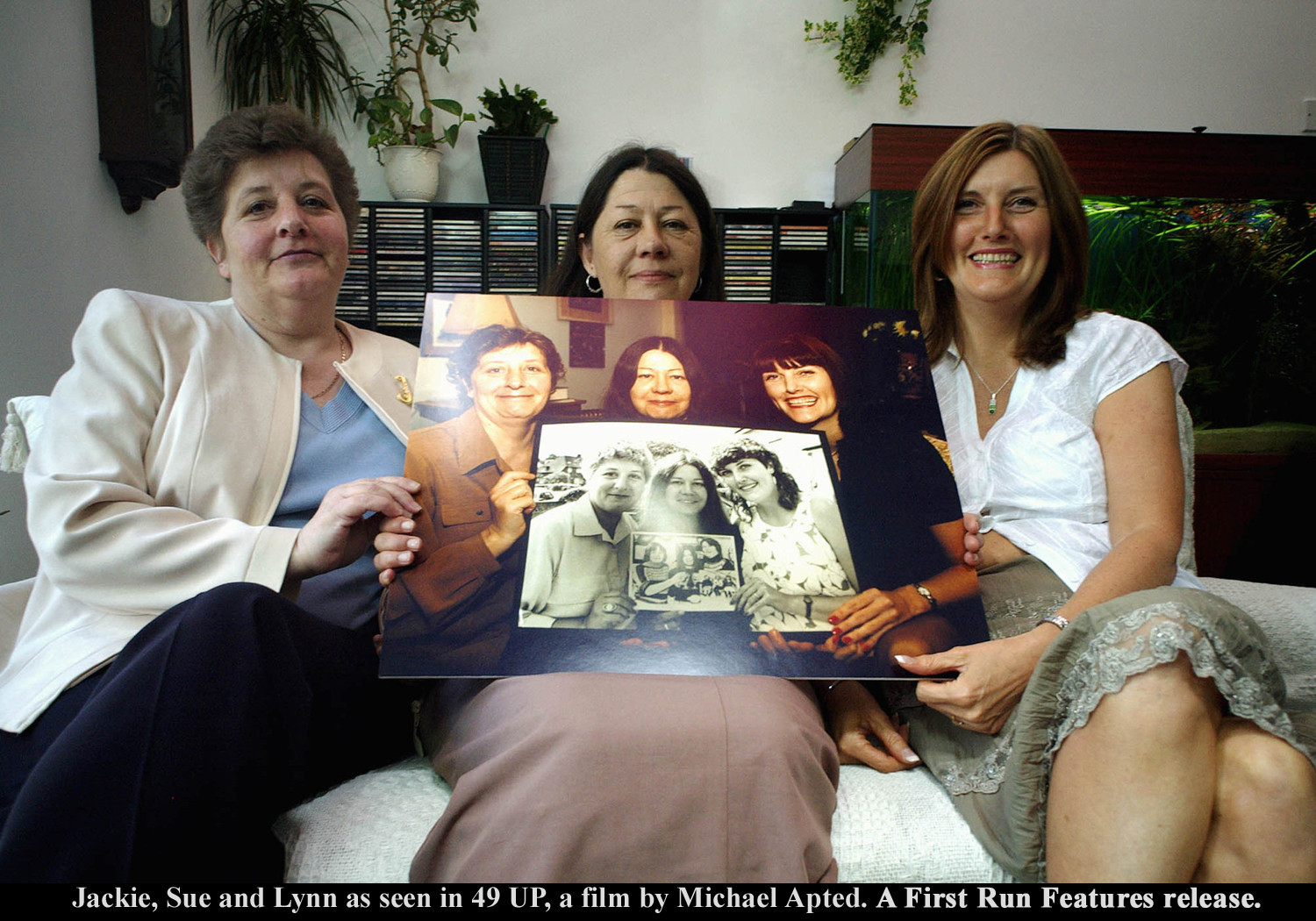





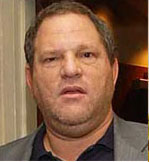
 Catherine O’Hara could’ve won an Oscar this year, and it’s not her fault she won’t. More on that (and
Catherine O’Hara could’ve won an Oscar this year, and it’s not her fault she won’t. More on that (and 
 atching Christ discover he's God made man. Witness the chop suey restaurant scene, in which Sheila is drunk. Lots of actors lose all believability when they’re asked to play drunk. O’Hara knows exactly what to do. In order to act drunk, one must make every effort to appear not drunk. On the Guffman DVD, go to the deleted scene in which Fred Willard makes her reenact famous baseball plays. O’Hara has no lines, but her demeanor, countenance and stance provide the biggest laughs. A lesser performer might’ve tried to play ping-pong with Willard’s antics. She wisely lets herself be steamrolled and steals the scene.
atching Christ discover he's God made man. Witness the chop suey restaurant scene, in which Sheila is drunk. Lots of actors lose all believability when they’re asked to play drunk. O’Hara knows exactly what to do. In order to act drunk, one must make every effort to appear not drunk. On the Guffman DVD, go to the deleted scene in which Fred Willard makes her reenact famous baseball plays. O’Hara has no lines, but her demeanor, countenance and stance provide the biggest laughs. A lesser performer might’ve tried to play ping-pong with Willard’s antics. She wisely lets herself be steamrolled and steals the scene. While
While  ost of the jokes and gags fall flat. The jokes that are funny are only funny because we know and love the people who are delivering them. This movie is not a satire. It's hyperbole. And it flares up like a firecracker and burns out almost immediately. Guest & Co. are in a downward spiral when they should be at the top of their game. I've seen it twice now. I am not mistaken about this.
ost of the jokes and gags fall flat. The jokes that are funny are only funny because we know and love the people who are delivering them. This movie is not a satire. It's hyperbole. And it flares up like a firecracker and burns out almost immediately. Guest & Co. are in a downward spiral when they should be at the top of their game. I've seen it twice now. I am not mistaken about this.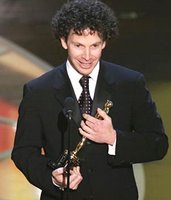
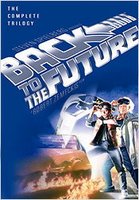

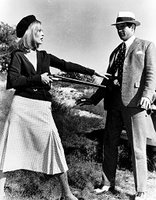




 "If you've ever seen the look on somebody's face the day they finally get a job -- I've had some experience with this -- they look like they could fly. And it's not about the paycheck. It's about respect. It's about looking in the mirror and knowing that you've done something valuable with your day. And if one person could start to feel this way, and then another person, and then another person, soon all these other problems may not seem so impossible. You don't really know how much you can do until you stand up and decide to try."
"If you've ever seen the look on somebody's face the day they finally get a job -- I've had some experience with this -- they look like they could fly. And it's not about the paycheck. It's about respect. It's about looking in the mirror and knowing that you've done something valuable with your day. And if one person could start to feel this way, and then another person, and then another person, soon all these other problems may not seem so impossible. You don't really know how much you can do until you stand up and decide to try."





